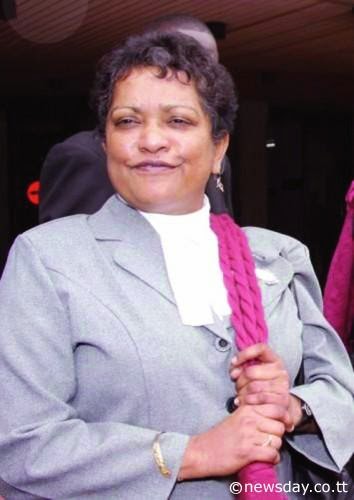The Short Brutish Life Of Brandon
The Caribbean Is One Nation.
The short brutish life of Brandon
By Vaneisa Baksh
Short and brutish, his life ended tragically. Yet even in a world where the bizarre has become almost banal in terms of its frequency, the life and death of Brandon Hargreaves was remarkably sad.
Twice in his short life, Brandon was the subject of sustained news headlines. Each time, the circumstances were terrible and deeply disturbing.
We know little about the circumstances surrounding his first ten years or so. His great-uncle, Clyde Mottley, told Newsday, that the boy’s life was “very hard”.
“He was tramautised very early in life, mentally, physically. To me he was a nice, loving child, reaching out for love and wasn’t getting it,” Mottley told Newsday at the Forensic Science Centre, St James, where the autopsy on Hargreaves took place.”
He was twelve, just on the cusp of teenage-hood, when the country first heard how hard his life was. Locked overnight in a kennel with the dog, he was found by police after neighbours made a report the next morning. He told the police that he was held down, stripped naked and forced into the kennel as punishment for being ‘harden’. This punishment was meted out by his relatives, his guardians, the people meant to protect and nurture him.
Nothing in the reports that surrounded that unforgettable story suggested that this child was wayward or troublesome; or that his behaviour was deviant in any way from children his age.
What the incident suggested was that the child had been brought up in an environment that showed no warmth, no mercy, no compassion and that his ‘punishments’ as he grew up were designed by sadistic minds. When he was found, apart from bite marks on his skin, there were several scars about his body that suggested he had borne the brunt of several beatings—otherwise known to the savage-minded as corporal punishment. He was also treated for malnutrition.
The word punishment was thrown around as the rationale for locking up the boy. It is a word commonly used synonymously with beatings; so when people talk about ‘disciplining’ children by punishment, they really mean licks—or something even more horrific.
Children learn in so many different ways that as parents, guardians, caregivers, teachers, we have a responsibility to find the most effective way for each child. Some learn through visual stimuli, others storytelling, some need to have more tactile expressions, others need sound.
I am no expert, but I’ve seen many examples of different methods and their impacts. On the other hand, when it comes to punishments, I’ve seen too much of it administered in rage, too many beatings, too much that is actually bullying, and it all adds up to no good. It is an emotional subject, I know, because every time juvenile delinquency is highlighted, people are quick to blame it on the removal of corporal punishment in schools, and it is amazing how many boast of how good they turned out with licks on their brains.
The point they miss is that ‘punishments’ do not need to be physically violent ones.
The more violence children encounter, either as recipient or witness, the more they see it as a normal medium of expression. The relatives of Brandon who beat him and locked him up—remember this was not one person’s act, it was three of them—must have come from a culture where this severity was not seen for all its barbarity, but perhaps as the way to ‘deal’ with a stubborn child.
It is also common in these cultures, for children (and women, meaning spouses) to be seen as possessions. That is why a man could pour poison into his infants’ unsuspecting throats; why drunken men habitually beat their women; and fathers could believe their daughters’ bodies are theirs for the taking.
It is true that the high incidence of these acts reveal the complexity of the malaise afflicting our society, and I raise it because many like to roll over and play dead and say evil stalks the land so let’s pull out some prayer books and all will be healed; but some of the most unbridled hatred and intolerance comes from pulpits.
The reality is that we keep missing the heart of the matter.
It is the brutality with which we are bringing up our children that is tearing them up and distorting their goodness. It is the neglect and the over-indulgence—just as destructive as the neglect—that corrupts their souls. The society we behold with horror now is the one we have so blithely and carelessly crafted while we cavorted on oil dollars. You cannot just sow seeds and leave them to grow whichever way the winds blow them, because that is exactly what they will do.
The hapless life of Brandon, whose future ended at 14, might have been an exceptional tale of one boy who emerged from an incredibly hard life; but he fell and hit his head, and in a world where most boys would have got back up, Brandon didn’t. And that was just his sad, sorry lot.
(From The Trinidad Express)
Mahogany Coconut will continue to highlight stories of abuse against our children women and the elderly.




Comments